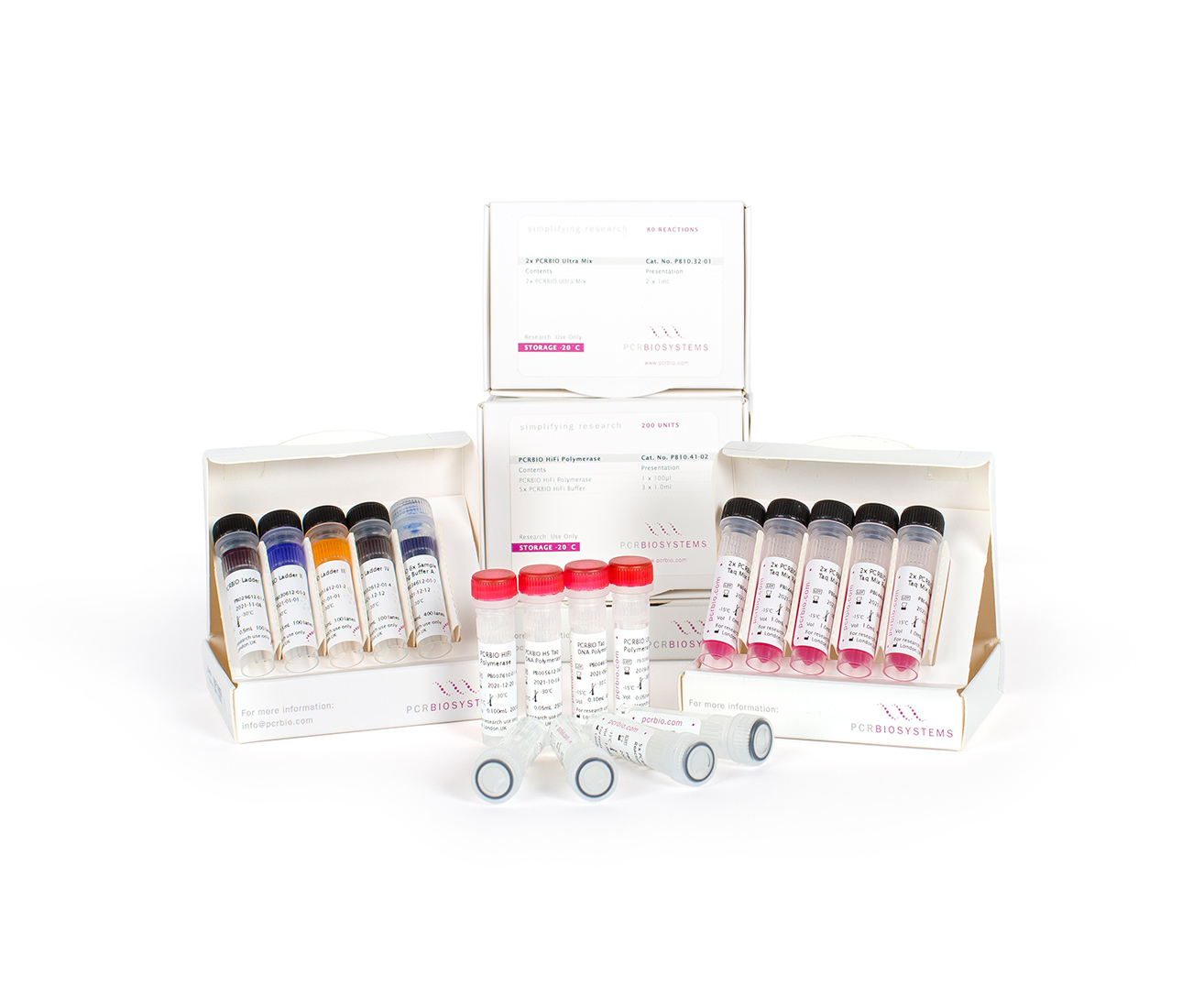
Find DNA polymerases and reagents for every PCR technique
What is PCR?
Polymerase Chain Reaction (PCR) is the method of choice for DNA amplification for nearly 40 years since Karry Mullis developed PCR in 1983. PCR is used to generate multiple copies of a DNA region. It is thus a crucial technique for all areas of molecular biology.
What are the different types of PCR?
Multiple types of PCR-based applications are used: to clone DNA, introduce specific mutations to DNA fragments by site-directed mutagenesis, modify DNA by introducing adaptors or specific sequences, to detect, identify, or quantify specific DNA targets, and even to quantify gene transcript (RNA) levels with adapted PCR techniques, such as reverse transcription-PCR (RT-PCR).
PCR continues to be the gold standard for DNA amplification and is still used in most biological research laboratories. Although PCR is principally unchanged, the technique has developed over time so that many different polymerases (e.g., Taq DNA polymerase, Pfu DNA polymerase, and derivatives) are available for use depending on the application and many of these polymerases are available as ready polymerase mixes, for reduced reagent handling during PCR-setup, or as hot-start DNA polymerases for increased amplification specificity. The functionality of these PCR applications also continues to improve as development scientists find ways to enhance the reliability, yield, specificity, sensitivity, and speed of DNA Polymerases.
At PCR Biosystems we continually develop our range of optimised DNA polymerases and high-performance kits and reagents to suit your needs and cover every PCR application.
Need more help with PCR?
View our PCR Applications page to find suitable polymerases based on your application or get in touch with a member of our team for a recommendation. You can also request free PCR reagent samples if you wish to test these under your specific experimental conditions.
Find our PCR reagents and kits below
PCR Water
PCR Water, for use as a high-purity diluent in PCRs, molecular biology reactions and sample dilution.

VeriFi™ Polymerase & Mixes
Our highest fidelity enzyme, ideal for cloning, sequencing and site-directed mutagenesis. Get better, more consistent results, even with long and difficult templates.

VeriFi™ Hot Start Polymerase & Mixes
Our most versatile proofreading enzyme now with AptaLock™ hot start technology for maximised specificity in your high fidelity PCR. Ideal for multiplex reactions and room-temperature setup.

PCRBIO Taq DNA Polymerase & Mixes
PCRBIO Taq DNA Polymerase is an affordable, versatile and robust enzyme for all your everyday PCR applications including genotyping, screening and library construction.

PCRBIO HS Taq DNA Polymerase & Mixes
Whether you need a hot start enzyme for high-throughput assays, automated reaction setup or the detection of a low copy viral template, PCRBIO HS Taq DNA Polymerase is a robust, industry-leading enzyme to meet your needs. Available in standard and custom formats to suit the specific requirements of your COVID-19 diagnostic workflow.

PCRBIO Ultra Polymerase & Mixes
Is your template GC-rich? Or low in abundance? Does your sample contain PCR inhibitors? PCRBIO Ultra Polymerase is engineered to tackle these hard to amplify templates.

PCRBIO HiFi Polymerase
Our original Pfu-derived high fidelity enzyme, PCRBIO HiFi Polymerase brings robust and reliable performance to the world of high fidelity PCR.

PCRBIO Classic Taq
PCRBIO Classic Taq is a highly purified recombinant Taq DNA Polymerase for all your everyday PCR applications including genotyping, screening and library construction.

PCRBIO 1-Step Go RT-PCR Kit
PCRBIO 1-Step Go RT-PCR Kit is a convenient, easy-to-use kit for fast and efficient cDNA synthesis and PCR in a single tube.

PCRBIO DNA Markers
PCRBIO Ladders I-IV are room temperature stable and ready for immediate gel loading. They cover a wide range (from 50 bp to 10 kb) and contain loading dye for simple migration observation.

PCRBIO dNTP Mix
Ultra-pure premixed aqueous solutions of dATP, dCTP, dGTP and dTTP available at a final concentration of 10mM each or 25mM each.


